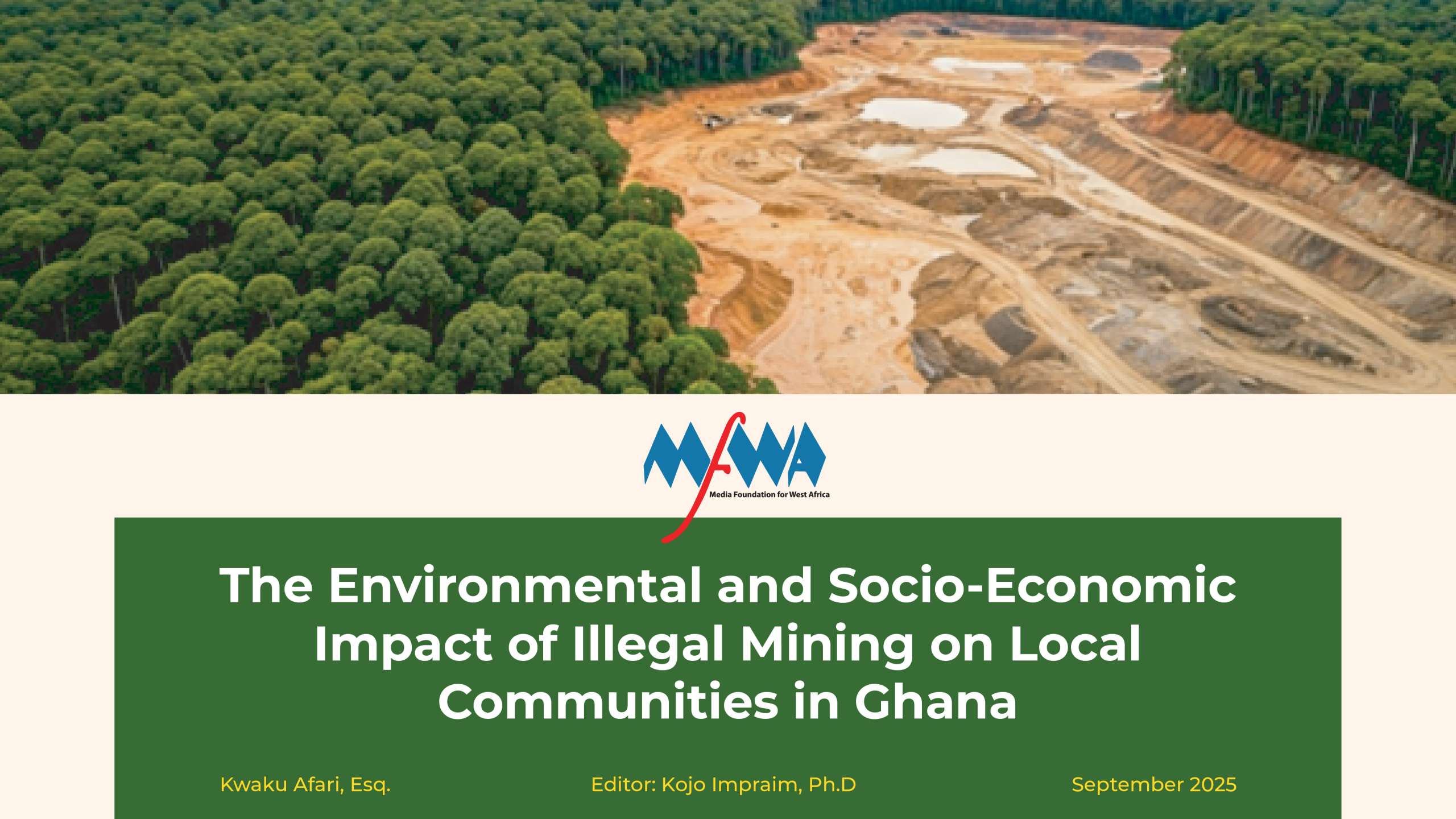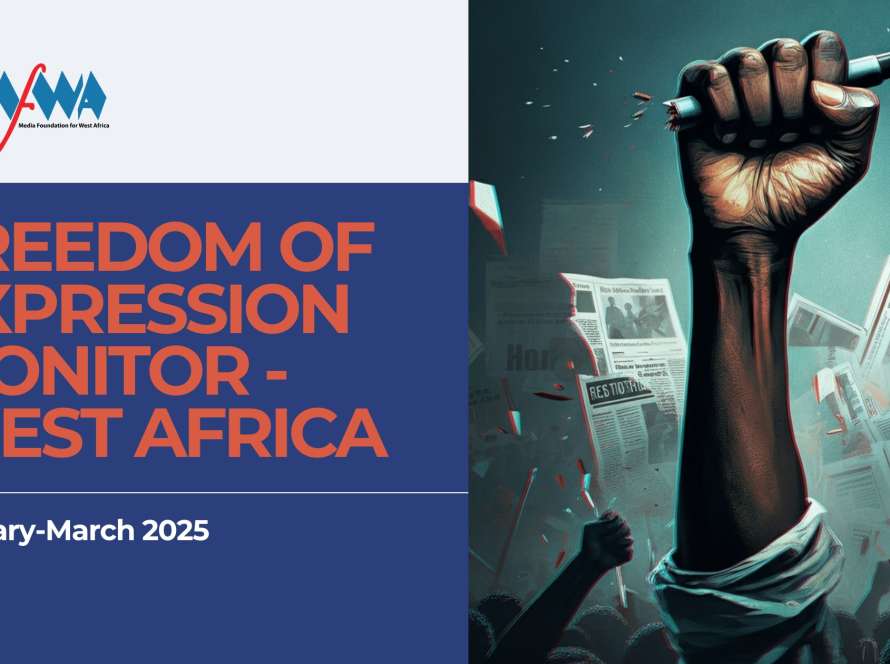Ghana’s democracy has gradually shifted into deep political polarisation, especially between the two dominant parties—the NDC and NPP. This has fuelled a “winner-takes-all” governance culture, entrenched patronage systems, and policy paralysis on critical national issues. One of the most pressing victims of this paralysis is the fight against illegal small-scale mining, commonly known as galamsey.
Despite numerous laws and repeated government interventions, illegal mining continues to devastate the environment, pollute water bodies, degrade farmlands, and threaten livelihoods and food security. The situation is further complicated by the political influence of individuals who finance both mining and major political parties, making decisive action both sensitive and costly.
To respond to this crisis, the Media Foundation for West Africa (MFWA), in partnership with the National Peace Council (NPC), National Commission for Civic Education (NCCE), and other key state, traditional, and religious institutions, is implementing the project: “Breaking the Gridlock: Resolving Polarisation-Induced Policy Paralysis in Ghana.” A major component of this initiative is the High-Level National Dialogue on Mobilising Citizens’ Consensus on Solutions to the Galamsey Crisis, scheduled for 28–29 October 2025.
As part of the dialogue preparations, five expert research papers were commissioned to provide evidence-based analysis and inform discussions. These papers focus on the impacts of illegal mining on the environment, water resources, agriculture, health, forest reserves, and peace and security.
About this report
Historically, gold mining was conducted using artisanal methods and supported rural economies. However, the liberalisation of the mining sector in the 1980s, coupled with weak enforcement capacity and rising global gold prices, triggered an explosion in informal mining. Many youth, unable to find gainful employment, entered into galamsey as a last resort to earn a living. The sector became increasingly attractive to foreign actors and has been marked by the use of heavy machinery, harmful chemicals, and degradation of once-productive farmlands and rivers. Small-scale mining is permitted under license, but most galamsey operations occur outside of this framework. The Minerals and Mining Act, 2006 (Act 703) and its amendments outline regulatory controls, yet enforcement is patchy and often undermined by political patronage and corruption. Despite Ghana’s reputation as a relatively well-governed, peaceful, and democratic country, its Artisanal and Small scale Gold mining (ASGM) sector is characterised predominantly by informality, criminality and deleterious environmental and human development effects, which include the ferocious denuding of the country’s vegetation cover, toxic pollution of water bodies, and serious health and safety hazards inflicted on the rural populace in mining areas.
This paper contributes to the objective of promoting evidence-based discourse that drives sustained policy reform by presenting a rigorous, but accessible analysis of the socio-ecological costs of illegal mining and pathways toward remedy.
Download the report here.






